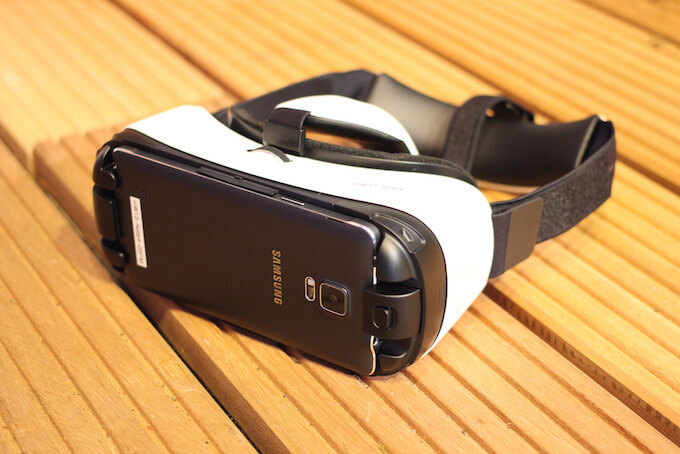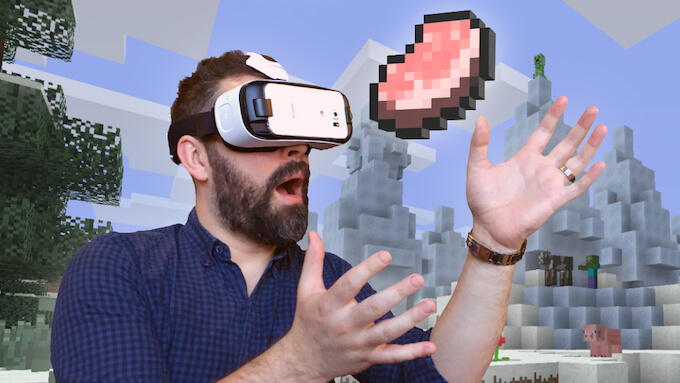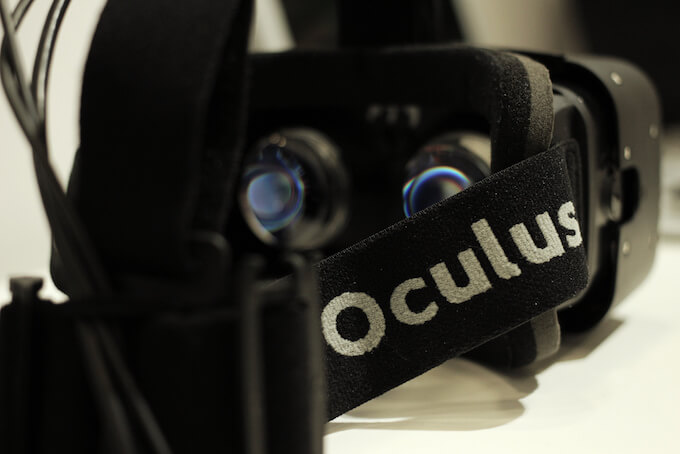2016 will be remembered as the year the virtual reality segment has taken-off. It is the technological trend of the moment, attracting people of all walks of life.
Developments that different manufacturers have introduced has started the most awaited VR war. Thus we felt an article on virtual reality devices comparison is the right direction forward.
Given the magnitude of this phenomenon we have reviewed the ones launched by top companies and try to make a comparison between them.
If you are a newbie and want to learn the basics of this trend, our previous post is dedicated to answering what is VR and its history. Anyway here is a short introduction, but for a better picture I recommend you to visit that page first.
What does virtual reality mean?
This technology has been trying to fulfill the promise we made as novels or science fiction movies, but has been now when finally advances have allowed access to these solutions.
Virtual reality combines high computing power with a series of optical techniques to simulate an immersive visual environment.
Simply put, it fulfils the promises made by science fiction movies and drops us into a very life-like world. This is made all easy with the availability of 360 degrees photos and videos content thanks to Google.
The virtual reality devices comparison is about measuring the level of immersion brought about by these VR devices. This immersion is brought about by proper amalgamation of various characteristics using VR games and content building software like Unreal Engine.
This includes adding simulated surround sound and with solutions like tracking systems for our head, gloves and specific controllers in our hand to interact with virtual reality.
At this point let me make it clear that virtual reality and augmented reality are not the same. Augmented reality is a technology in which visual information about our real environment overlaps.
The best example of this type of solution we have is the HoloLens of Microsoft but this is not yet available to consumers you will have to wait to get your hands around it.
Augmented reality devices, yes, often need external hardware. That means that glasses alone do not provide the total experience, but we will need a personal computer or mobile phone depending on the type of solution offered.
Now that we are clear on several conflicting terms we present to you the ultimate virtual reality devices comparison of 2016.
Difference Between Virtual Reality and Augmented Reality (VR vs AR)
VR is a computer-generated projection of a world… AR is technology that adds digital objects into the… Virtual Reality and Augmented Reality are both..
In-Depth Virtual Reality Devices Comparison
#Google Cardboard
This is the easiest and cheapest way to start experimenting with what gives us virtual reality. Google engineers have created the base model and others have adopted it to create their own variants.
Many of these glasses make use of cardboard that was used in the original model. However, there are also others that are more complex (and expensive) also use plastic and other elements that try to make these glasses more comfortable to put on.
In this case, the only requirement is to have a smartphone to run applications and play video games in VR mode. Although Google makers originally paid attention only to android devices of certain dimensions but almost a year ago that experience also moved to the devices based on iOS.
Although these glasses are usually adaptable to different sizes of mobile, you should check whether your particular model can “fit” well on these low cost glasses to have a good experience.
If that is true, we can begin to experiment with many applications and games available on Google Play with the Cardboard application as a gateway to more experiences both offered Android and iOS.
Hence we can enjoy any video from YouTube in VR mode provided by the official YouTube app. This has resulted is an ever increasing 360 degrees photos and videos content all across the Internet.
Advantages: Firstly, the price. It is possible to get this kind of virtual reality glasses for just Rs. 400. Secondly, there is a huge amount of content to enjoy VR experiences from the first time at a really low price.
Another strong point of this alternative is the fact that it only needs a smartphone. In fact the vast majority of devices on the market are perfectly compatible with these glasses and offer direct VR experiences.
Disadvantages: The principal is that the quality of experience is only decent. The Cardboard are so basic that we depend on our smartphone for everything, including our head tracking or motion tracking. Some consider these glasses more as a way to “see” contain in virtual reality but not “plunge” into them.
Other factors contribute to these cases available in other solutions is latency, which does not make the experience comfortable. In fact, this aspect contributes to a few minutes feelings of dizziness or nausea during sessions in the virtual worlds.
#Samsung Gear VR
Samsung engineers worked on a product that was essentially an improved version of the Google Cardboard version. And launched it naming it as Samsung Gear VR. At first glance it may simply be a more elegant Cardboard but actually its benefits go beyond that final finish.
It is true that the construction is much more solid and that the final aspect is not only more pleasing to the eye, but also much more comfortable to use. However, the differences lie in the additional elements that Samsung added.
These include better optics, better field of view (96 ° versus 90 ° of Cardboard), and better monitoring of our head thanks to a series of sensors specifically aimed doing all the homework.
The benefits continue in other important sections such as low persistence -less fast- motion blur and lower latency, which makes the immersion feeling generally is of higher quality and that it is also less likely to experience prolonged sickness potential with this device.
There is another element of interest. It is the presence of a number of controls on the right side of the glasses used to move through the menus in various applications and games with ease.
Gear VR is much better in such interactions thanks to those simple shortcuts provided. While in case of the Cardboard it is done only by staring at one point and continuing to do so for some time.
All this makes the Gear VR a superior version of Cardboard with almost similar virtual reality experience and costs a little more for the quality of the product. It is now available in amazon for INR 6500.
The requirements are more special given that we can only use these glasses with certain models of smartphones from Samsung. Specifically with Samsung Galaxy S7, S7 edge, Note5, S6 and S6 edge.
Advantages: This is such a cheap solution, but still more normal compared to other alternatives and need a powerful PC. The dedicated hardware is developed by Samsung in collaboration with Oculus.
This means support in the form of available 360 degrees content and a strong partner behind: Facebook, whose founder, Mark Zuckerberg, and said that “virtual reality is the next social platform.”
Disadvantages: It only need a smartphone to run, about not any smartphone. You need to have one of the latest models of high-end Samsung smartphones.
In fact this would be the ideal solution for owners of these Samsung devices. But if you want to go a step further into the quest for best VR experience and makes some quick virtual reality devices comparison with Gear VR, it isn’t so much appealing.
#PlayStation VR
The Japanese electronics giant after the success of the Playstation has released the first virtual reality device with the name as Playstation VR, in short, PSVR. It has unveiled this final product into the market recently for a price of 399 dollars. But the PS Camera is also necessary to enjoy the experience of virtual reality.
Logically this platform is part of Sony entertainment ecosystem. We will need a PlayStation 4 to play those games, but in this sense investment is much lower than that which is necessary for a powerful PC like in case of the Oculus Rift and HTC Vive.
Console controllers can be leveraged from that, and also with PS Move controls developers can tap into their own experiences to take advantage of these devices. Sony seems to be bringing about a future with its own content for virtual reality , although so far there is no official confirmation.
From the tests performed the virtual reality glasses PSVR are rated especially as comfortable, although as in these solutions headsets will be permanently connected to the console through a relatively long cable. back to give some freedom of movement.
Sony has also promised to offer a catalog of 50 games titles that will be available before the end of the year, and in the package itself will include ‘PlayStation VR Worlds’, a collection of five mini. You can enjoy the VR experience from these games right from the first moment.
These glasses also have another striking feature. They serve as an alternative to TV that we connect the console to. We can play all the games taking advantage of the current catalog screen of 5.7 inches of the glasses. This will put before our eyes a 16: 9 vision format of those games with a resolution of 1,920 x 1,080 pixels.
Advantages: The success of the PlayStation 4 is guarantor of the potential interest of PSVR. This will mainly attract attention by being significantly cheaper than their competitors.
The chance to enjoy the current catalog of games although in reality -nothing virtually conventional format is another point of interest. When we take all virtual reality headsets comparisons into account, there is a point very much in favor of PS4.
That is, being a closed ecosystem it works only with one type of device (PS4) and hence will have no theoretical configuration problems.
Disadvantages: Screen resolution is lower than that offered by Oculus and HTC devices (both with 2,160 x 1,200) although its refresh rate is higher, 120Hz & 90Hz compared to its competitors.
The field of view is smaller (90 ° versus 110 ° of the Rift). There are still doubts on other issues such as latency or persistence.
All this adds up to the fact that the hardware of a PS4 is significantly lower than PCs that are necessary for the Oculus Rift and HTC Vive, which suggests that the quality of the experience in virtual reality could be lower comparitively.
#Oculus Rift
The Oculus Rift is the benchmark in this segment in its own right. These boys have brought this concept to light with their Kickstater project campaign. These glasses are made clearly targeting those who seek the highest quality experiences in this area.
For starters, the Oculus Rift cost 699 dollars but that is only one part of the investment. But the real deal is with meeting the hardware requirements. Unless you’ve recently updated your computer you may have shell out a lot to meet the graphic card and processor requirements.
Yes, if we meet the hardware requirements we will get to experience the benchmark promised by virtual reality. Oculus is also preparing for the Oculus Touch launch in the coming months. These controls provide better interaction with these virtual worlds.
Advantages: The initial offering of content and video games is particularly striking. Of course if we will have the perfect hardware, the Oculus Rift is ready to offer the best possible experience in the virtual reality environments for the end user .
Disadvantages: The emergence of the next competitor as discussed below has made a striking limitation over the experience offered by Oculus. The hardware requirements make the economic investment to scale up far beyond the 600 dollars mark.
This VR device similar to the HTC Vive glasses are connected by wire (that too relatively long) to PC. Hence misses out in providing a wireless experience like that of Cardboard or Gear VR or Google Daydream VR for example.
#HTC Vive
The HTC Vive are virtual reality glasses that arose with the support of Valve. The HTC Vive are direct competition to Oculus Rift. These are also important and has very striking additional elements. Hence the HTC Vive experiece is more complete and rightly so.
In addition to the virtual reality glasses two wireless controllers are included for the hands.These two base stations are especially interesting because they expand the virtual experience and enable us to enjoy not only sitting, but standing.
These base stations make use of a technology called Lighthouse that “maps” the room. It is then viewed as a virtual stage and the user can move through it. Those who have tested the system state that the result is completely immersive. But it remains to be seen whether such supplements are usable and practical in conventional homes where there are furniture and objects scattered in different locations.
Use of these base stations and two wireless controllers make the HTC Vive a more complete and attractive solution. If we want to experience maximum immersion you will have to pay the price and it will be around 900 dollors.
Similar to Oculus Rift, we will need a powerful PC to complete the whole VR experience. The minimum requirements are virtually identical to those of his rival and as in the previous case the most important thing is to have a proper graphics card (NVIDIA GeForce GTX 970, AMD Radeon R9 290 or higher) in addition to a 4 GB of RAM, an HDMI port DisplayPort 1.4 or 1.2 or higher.
Advantages: If you want to experience immersive virtual reality especially, of course the HTC Vive with its accessories and the inclusion of controls and base stations offer you just that.
The ability to enjoy virtual reality experiences where we have no business to be sitting is also promising, although here it remains to be seen of the final result with different games.
Disadvantages: As in the case of the Rift, the price is high and the investment also includes a probable PC upgrade to which we connect these glasses to. There is a cable from glasses to PC and they only increase with the inclusion of additional hardware elements.
Although HTC does not have many legends in its development, this collaboration with Valve should make things easier. In fact the output catalog is promising, though perhaps not as much as the Oculus.
Conclusions: Something for everyone
There are the five great virtual reality headsets in the market today with more flooding the market. There are also a host of accessories and peripherals being designed. These can provide even more immersive experiences with the original VR headsets.
Google has released the Daydream VR Headset, we are waiting to see how it satisfies the user. It is available in the market from November and we would love to get our hands on it.
From this virtual reality devices comparison, clearly there are headsets for all tastes and all price ranges. Anyone can therefore experiment with virtual reality quickly and cheaply thanks to Google Cardboard.
From there decide whether to go further in this segment that actually is still in its early days. Not only in the entertainment segment but in all disciplines virtual reality could become a particularly striking tool.
All these products as we have seen have advantages and disadvantages. Now we have to see how it evolves one of the most promising segments of the future. Virtual reality is finally available to everyone. We are confident that there is still much to see in this area.
Image Credits: VRFocus, Multiplelife












I see your blog is in the same niche like my blog. Do you allow guest posts?
I can write hi quality and unique articles for you.
Let me know if you are interested.
Hi Shery,
We do accept guest Posting if your article is worth. Soon you will see a Submit Guest Post Section on the top navigation.